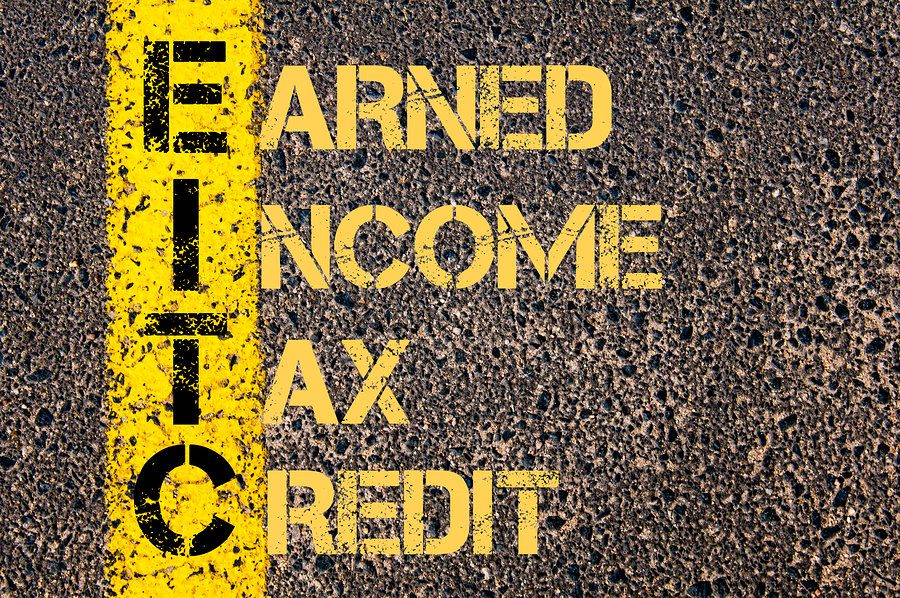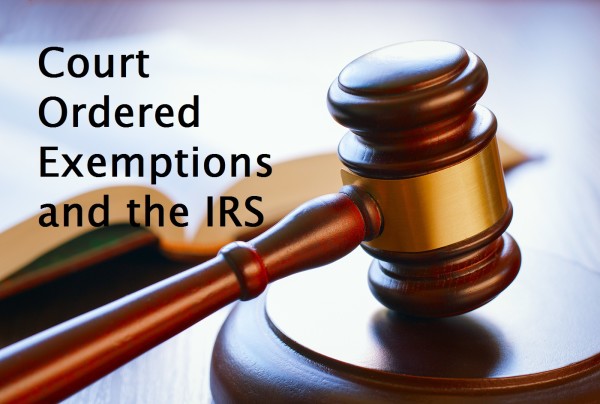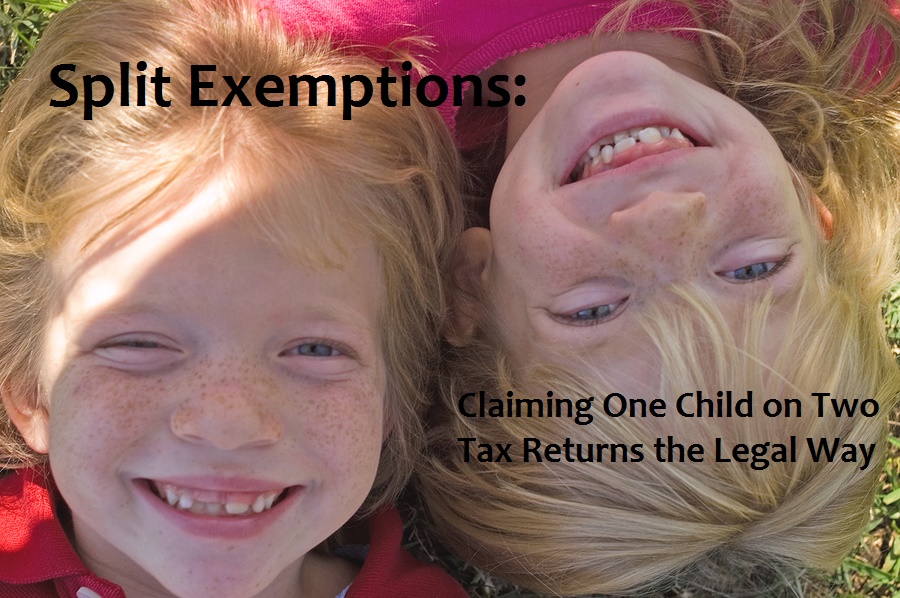
There’s a big difference between accidentally claiming your child and criminal tax fraud.
I often hear the question, “Will I go to jail if I cheat on my taxes?” People see celebrities go to prison all the time, Richard Hatch, the guy who won a million dollars winning “Survivor”was been all over the news for awhile for tax evasion. He spent four years in prison. Note: if you win a million dollars on national television, it’s safe to assume that the IRS knows about it and is looking for it on your tax return. Other celebrity tax evaders include Wesley Snipes, Darryl Strawberry and Willie Nelson. (And the list goes on and on….)
But what about EIC fraud? What happens to you when you claim a child that’s not yours, or if you allow someone to claim your child when that person isn’t the parent? What’s the punishment there?
If the IRS examines your return and finds that you cannot claim EIC, the worst case scenario would be that they impose “civil fraud” penalties on your return. The penalty for civil fraud is 75% of your underpayment of income tax.
Say for example that you involved yourself in a scheme where you claimed children that didn’t belong to you over the course of three years. The difference between what you received as a tax refund averaged $5,000 more each year than if you didn’t illegally claim those children for a total of $15,000 in excess refund dollars. When the IRS catches up with you, they will demand their $15,000 plus another $11,250 for the penalty which would make your balance due $26,250. Add to that the interest you’d be charged and you see how costly this is.
What makes this even worse is that if you are charged with civil fraud the IRS can then turn the case over to the Criminal Investigation Division for prosecution. You could face both civil and criminal penalties at the same time—meaning they put your butt in jail, levy your bank account and put a lien on your house and any other property you own.
Most people who get caught for EIC fraud don’t have the money to pay back the tax owed, not to mention the added fines. And of course, the higher the dollar amount owed to the IRS, the higher the likelihood of criminal charges. So you really don’t want to hear the word “fraud” if the IRS comes calling.
But that’s the worst case scenario, fraud is pretty dangerous stuff, and they have to be able to build a case for it. One of the key points of fraud is that you knew you were doing it. I once spoke to a potential client over the phone, she had received an IRS letter and they were charging her penalties for fraud. As she explained her case, she kept insisting that “she didn’t know.” I thought there might be a case for her so I asked, “You mean you didn’t know it was wrong to claim someone else’s child?” She said, “No, I didn’t know I could get caught.” That’s not going to get you off of fraud charges. I gave her the name of an attorney—if there’s a possibility of criminal charges, you’ll want the tax attorney over the EA or CPA. (EAs and CPAs have client privilege for tax issues only, for criminal cases, only an attorney has privilege—meaning what you tell them, they can’t tell on you.)
In most cases though, a much more likely scenario is an accuracy related penalty—that would be 20% of the under-reporting. Let’s say you live with your girlfriend, she has a kid, she said you could claim the kid; you don’t know it’s illegal but you get caught. You’ll have to pay back the EIC plus the accuracy related penalty. If the EIC difference was $5000, then you’d add another $1250 making the balance due $6,250. The IRS would add interest to that as well.
Generally, if you lose an EIC audit, you’ll also be banned from claiming EIC for somewhere between 2 and 10 years depending upon the severity of the case. That’s probably the worst penalty for most people. Many of the people who get in trouble for EIC generally are able to claim EIC in other years. Being banned from EIC for 10 years can cost a person over $50,000. That’s a lot of money.
Accuracy penalties usually involve amounts of over $5,000. If your EIC under-reporting is less than that, you’re more likely to pay “late payment” penalties which are equal to ½ of one percent per month. For example, you file your return in February of 2008, in March of 2010 they catch up with you. This means that the penalties have been adding up for 24 months, you’ll pay 12% for the penalty, plus the interest owed. Let’s say you only got an extra $1000 for falsely claiming EIC, you’d have to pay back $1,120 plus interest of course. The IRS will always get their interest payment.
But what if it’s not my fault? That’s a very common question. What if it really isn’t your fault? What happens if you went to a preparer that didn’t know any better and claimed EIC for you when she shouldn’t have. Or worse, you had a crooked preparer. (These things really do happen.)
You’ll have to report the preparer. There are serious fines and penalties for tax preparers associated with EIC negligence and fraud. The smallest, yet the easiest to prove, is the EIC due diligence paperwork. For every tax return that has EIC on it, a paid preparer must have a form 8867. Here’s a link to see what it looks like: http://www.irs.gov/pub/irs-pdf/f8867.pdf
The link is to the official IRS form. In my office, my computer software actually uses the same form but I’m required to sign it and have my client sign it as well basically stating that everything on the EIC form is true. Here’s the thing—the IRS can call up any tax office at any time and say, “Hey, we’re coming to audit your 8867 EIC forms.” As the owner of a tax business, I have to be able to pull them all and have them ready for inspection. If I don’t have an 8867 form for every EIC tax return I prepare, its $100 for each one I’m missing. Guess what, I’m not going to be missing any of those forms. I can’t afford it and I don’t prepare that many EIC returns. You can bet that an office with lots of EIC returns has itself covered in the forms department.
So here’s where I’m going with this, if your preparer really is crooked, do report him to the IRS, it’s the right thing to do. But if you lied to your preparer about your relationship to the child you claimed or some other EIC offense, and the IRS goes to the preparer’s office and pulls the 8867 forms, and they find a signed affidavit with your signature saying that you are the actual parent of the child—now you’ve just proved that you committed a fraud. That’s the last thing you want to do. Remember, a plain error costs a lot less than fraud and there’s no jail time involved.
So what should I do if I receive an EIC audit letter? If you have the rightful claim to EIC, fight it. If you’re not sure, maybe you do, maybe you don’t—seek professional help. I’ve seen innocent people lose EIC audits because they didn’t know the rules. Don’t take chances, it’s too costly. If you know for a fact that you should not have claimed a child, pay up and get it over with as quickly as possible. It won’t be easy, but in the long run it will be better for you.
If you know that you’ve illegally claimed EIC, don’t wait for the IRS to come after you. File an amended return and pay the tax. You’ll definitely have to pay interest, but by filing an amended return and paying before you get an IRS letter, you have a very good chance of avoiding the penalties. You’ll probably sleep better too.
_______________________________________________________________________
Here are some links that might help:
EIC questions of any kind: http://www.irs.gov/Individuals/Earned-Income-Tax-Credit-(EITC)-%E2%80%93–Use-the-EITC-Assistant-to-Find-Out-if-You-Should-Claim-it.
How to find free tax preparers: http://www.irs.gov/Individuals/Free-Tax-Return-Preparation-for-You-by-Volunteers
How to find your local IRS office: http://www.irs.gov/uac/Contact-Your-Local-IRS-Office-1










